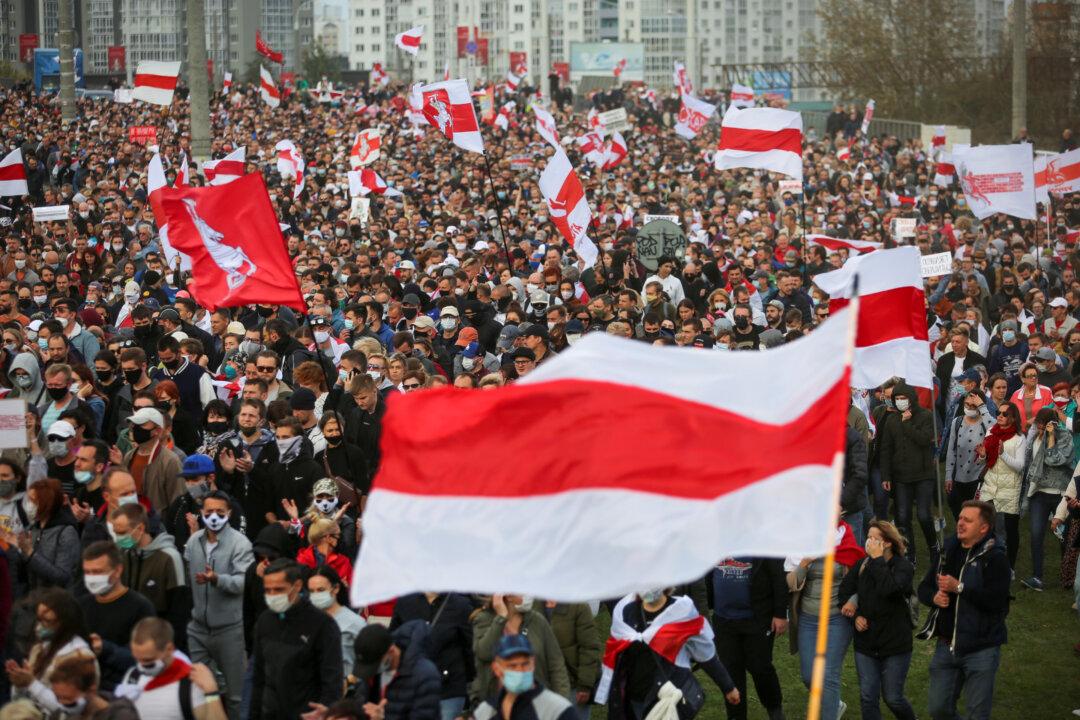MOSCOW—Tens of thousands of people marched through the center of the Belarusian capital Minsk on Oct. 4 to demand that authorities free political prisoners, prompting police to turn water cannon on them.
The march is the latest in a series of rallies in since an Aug. 9 election in which Belarus leader Alexander Lukashenko claimed a landslide reelection victory. His opponents say it was rigged to hand him a sixth term in power.





